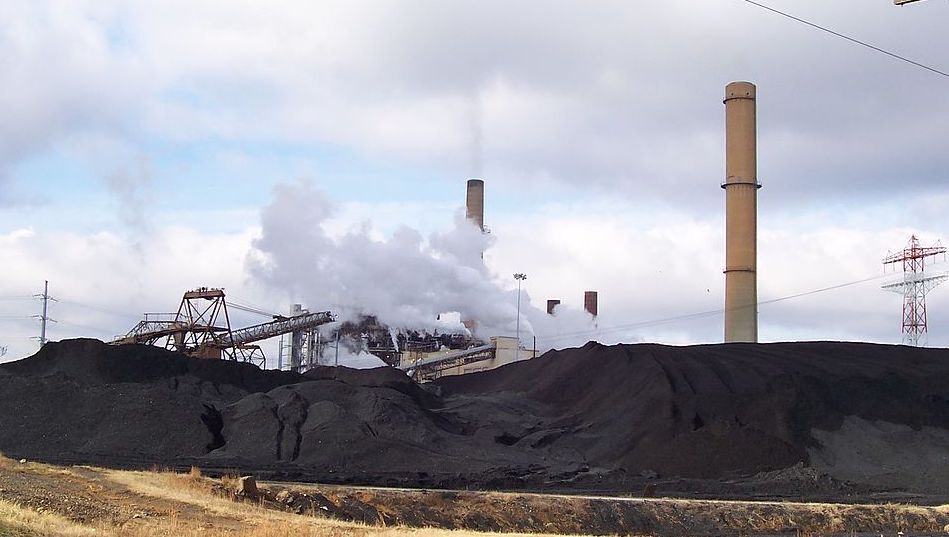Five employees of the Virginia Department of Environmental Quality (DEQ) have financial interests in Dominion, the state’s largest utility and energy company. The officials are involved, in one way or another, in permitting or overseeing the company’s activities, ranging from water discharges to emissions controls on power plants.
According to financial disclosures filed with the state’s ethics council, four of them directly own stock in the company, while the wife of a fifth official works for Dominion.
Dominion, DEQ, and Regulatory Decisions
Documents obtained by DeSmog through a series of open records requests show that the DEQ officials are all involved in decisions concerning Dominion facilities and projects.
Three of them work in the Valley Regional Office, which oversees three of Dominion’s power stations in the state — the Bremo, Bath County, and Warren County stations. Amy Owens, the region’s director, owns Dominion stock. In 2016 she signed off on a controversial permit that allowed Dominion to discharge treated water from the Bremo power station’s retired coal ash ponds into the James River.
The permit was met with strong criticism by environmental groups. “When it [coal ash] comes out of that pipe, it won’t meet the required standards of water quality,” Pat Calvert, the Upper James River Keeper with the James River Association, said at the time. “The river is going to be used to dilute the wastewater to permit levels. Those are the shores of Fluvanna County that will be essentially a sacrifice zone.”
Owens’ deputy, Bryan Fowler, also owns Dominion stock. Documents obtained from DEQ show that he supervised an inspection at the company’s Bremo power station in July last year. Another employee in the regional office, air permits manager Janardan Pandey, who is responsible for permitting Dominion’s three power stations in the region, owns Dominion stock.
Emails show that both Fowler and Pandey were recently involved in discussing Dominion’s plan for shutting down parts of the Bremo power station during certain winter periods.
According to their financial disclosures, Owens, Fowler, and Pandey each stated that their Dominion stocks are worth between $5,000 and $50,000.
In DEQ’s northern regional office, air permitting program manager James LaFratta also owns Dominion stock, which he listed as worth between $5,000 and $50,000. Documents and emails from the past year and a half show that LaFratta has been involved in permitting decisions concerning Dominion’s facilities in the area, including the Gordonsville, Remington, and Possum Point power stations (where Dominion requested approval for new emission controls for one of the units), and Ladysmith combustion turbines station.
He was also involved in decisions concerning the Quantico compressor station (where Dominion sought to install an emergency generator), and Leesburg and Loudoun compressor stations.
In one email, LaFratta discussed with colleagues a meeting requested by Dominion representatives, including from its media department, to apparently prepare the DEQ on how to deal with “concerned citizens & neighbors who may be next contacting us” in relation to the Leesburg and Loudoun compressor stations.
Such stations, which are built in intervals along gas pipelines, propel the gas running through the pipeline system. Since the stations emit various toxic substances, they require air pollution permits in accordance with federal and state laws.
From an internal DEQ email, discussing a meeting between officials and Dominion about preempting “concerned citizens & neighbors” near the company’s compressor stations.
Another DEQ employee has an interest in Dominion through a family relationship. Michael Kiss, who’s in charge of the office of air quality assessments at the DEQ’s main office, disclosed that his wife, Rebekah Kiss, works as an environmental manager at Dominion. Michael Kiss has been involved in recent years in permitting Dominion’s Buckingham compressor station as part of its Atlantic Coast pipeline project. The DEQ recently issued a draft permit for the station.
Does Owning Stock Create a Conflict of Interest?
It bears mentioning that internal DEQ documents obtained by DeSmog give little if any indication these links to Dominion mean the officials in question automatically side with the company.
In fact, in at least one instance, Bryan Fowler sought a more stringent regulatory approach to the company. Reacting to Dominion’s proposal for decommissioning parts of its Bremo power station during winter, Fowler suggested adding new reporting requirements, saying, “I don’t like open-ended reporting they’ve proposed if they have an active permit.”
Joe Maschman, a legal fellow at Common Cause, a watchdog group which monitors money in politics and government, points out that Virginia’s ethics laws generally prohibit state employees to receive money or business opportunities that “reasonably tends to influence him in the performance of his official duties.”
Recusals are required when a personal interest is involved. However, Maschman says, the bar for the existence of such an intertest is relatively high and includes an ownership in an interest exceeding 3 percent of the total equity of the business and an annual income that exceeds $5,000 from the ownership of the business.
Since individual stock ownership of large publicly-traded companies like Dominion rarely exceed 3 percent of its total issued stock, “this suggests to me that the four officials who own stock in Dominion would not have a conflict,” says Maschman.
“Mr. Kiss, on the other hand, assuming his wife receives compensation from Dominion greater than $5,000 per year, would have a personal interest in matters concerning Dominion Energy and the DEQ,” Maschman adds. “He would need to recuse himself from such matters to maintain compliance with the ethics laws.”
Ann Regn, a DEQ spokesperson, said that according to the state’s ethics laws and the agency’s own policies, the DEQ does not believe the five officials have a conflict of interest. However, the DEQ is consulting on the matter with the state attorney general’s (AG) office.
“In addition to the state code, DEQ has its own standards of ethics policy,” Regn told DeSmog via email. “We don’t believe there’s conflict of interest with any of the staff, but to be sure, we reached out to the state AG‘s office for their concurrence.” The DEQ has not heard back from the AG’s office by the time of publication.
Regn added that in addition to filing disclosure forms, staff are required to take conflict of interest training every two years.
Asked whether the five officials would like to provide comment, Regn said: “DEQ’s Communications Office coordinates agency media requests and have informed staff of your questions. No one indicated they have anything else to add.”
Dominion Energy did not respond to a request for comment.
More Fuel to the Critics’ Fire
Ethics laws differ from state to state, as definitions of what constitutes a financial conflict of interest vary widely. While in some states, the definitions remain vague and general, prohibiting the holding interests that hinder sound judgment, others — like Arkansas — mandate clearer restrictions on the percentage of stock ownership.
Whether recusals are in order or not in the case of Virginia’s DEQ, such financial ties are likely to be seen by long-time critics of the DEQ as more evidence of Dominion’s long arm in Virginian politics and government. Environmental activists were outraged in recent years to learn that DEQ Director David Paylor accepted $2,300 from Dominion to attend a golf tournament and a dinner engagement.
Soon after, opponents of the mammoth Atlantic Coast pipeline, which would carry fracked gas from the Marcellus and Utica shales to West Virginia, Virginia, and North Carolina, harshly criticized two DEQ decisions. One was to yield the review of the pipeline’s waterway crossings to the Army Corps of Engineers and the second was to separate the agency’s review of erosion and sediment control plans for the pipeline from the water-quality certification — moves that were interpreted as a nod to Dominion’s interest.
And as DeSmog revealed last year, a contractor hired by the DEQ to review a portion of the pipeline was already working directly for Dominion on another project.
Main image: Dominion’s coal-fired power plant located in central Virginia beside the James River at Dutch Gap. Credit: Edbrown05, CC BY–SA 2.5
Subscribe to our newsletter
Stay up to date with DeSmog news and alerts







